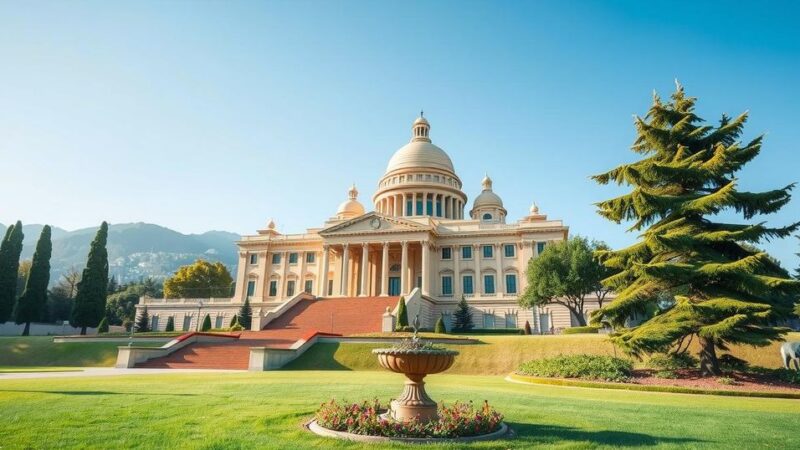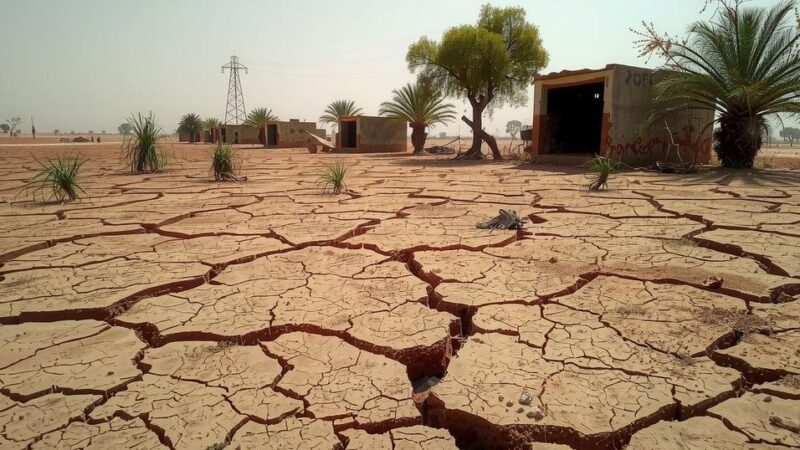The Sudanese army has regained control of the presidential palace in Khartoum, two years after it was seized by the RSF. This event reflects ongoing military conflicts in Sudan, with significant implications for regional stability and humanitarian conditions.
The Sudanese army has successfully reclaimed control of the presidential palace in Khartoum. This development occurs two years after the paramilitary Rapid Support Forces (RSF) initially seized the structure amid ongoing conflict. Khaled al-Aiser, the Sudanese information minister, announced the retaking of the palace on social media, signifying a pivotal moment in the nation’s turmoil.
The RSF had occupied the palace, along with substantial portions of Khartoum, since April 2023, prompting the army-led government, under Abdel Fattah al-Burhan, to relocate to Port Sudan. The palace includes two significant buildings: the historic Ottoman-Egyptian republican palace from 1825 and a modern structure built by former leader Omar al-Bashir in 2015. Both were damaged at the conflict’s onset, with the historical site bearing profound symbolic importance in Sudan’s colonial history.
Following the army’s recapture of the palace, reports indicated a drone strike launched by the RSF that resulted in the deaths of three journalists who were covering the event. The RSF has asserted that their presence remains near the palace and stated that the conflict is ongoing.
In recent months, the army has made critical advancements in central Sudan, reclaiming territory from the RSF. However, the RSF has fortified its position in the Darfur region, facing accusations of genocide against non-Arab populations. A report from the Raoul Wallenberg Centre highlighted this ongoing atrocity, which has drawn international condemnation and sanctions against RSF leaders.
Concerns persist that the conflict could evolve into a situation reminiscent of Libya, potentially fragmenting Sudan into divided governance structures. Ultimately, the protracted conflict has displaced over 10 million individuals and left more than 12 million facing acute food insecurity, with fatalities numbering in the thousands.
The Sudanese army’s recapture of the presidential palace marks a significant, albeit turbulent, milestone in the ongoing conflict with the RSF. Despite these military gains, the RSF maintains a presence and continues to threaten stability, particularly in Darfur. The humanitarian impact of this two-year struggle is profound, with millions displaced and facing food insecurity, indicating a pressing need for a resolution to the conflict and restoration of peace in the region.
Original Source: www.middleeasteye.net






